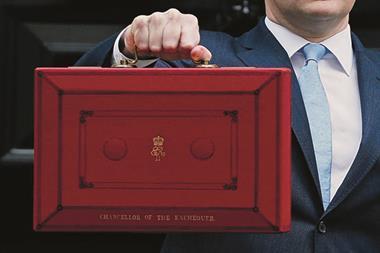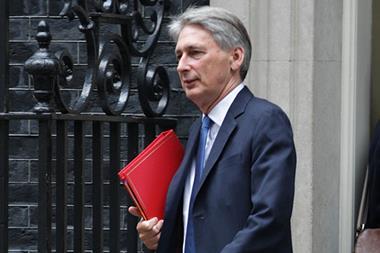The chancellor’s Budget last week focused heavily on housing, with a cut in stamp duty for first-time buyers being a helpful boost for those already possessing the means and will to step on to the housing ladder.

However, as everyone in our sector agrees, there is no single solution to the housing crisis and the government needs to explore a number of different ways to turn its new enthusiasm into tangible results.
One option is looking again at Help to Buy. The intention behind the scheme is good but a qualifying maximum value of £600,000 for the scheme is too high for the average first-time buyer.
If the government were to reduce the limit to £300,000 – in line with the chancellor’s first-time buyer stamp duty holiday – it would place greater pressure on the market to deliver affordable homes, while remaining fair and accounting for the high value of London housing.

Extending the scheme so it was no longer restricted to new homes would be a further plus. After all, how many of us bought new cars the day we passed our driving tests?
Getting SME developers back into the mix should be another mission for the government after the Budget.
SMEs have been largely shut out because they struggle to achieve planning permission for their preferred sites – smaller town centre opportunities that are too small for the major housebuilders.
Conflict-of-interest rules
There have been many attempts in the past to speed up the planning process, but even schemes that go to committee with recommendation for approval risk being shut down by local interests.
Perhaps thought could be given to new conflict-of-interest rules, such as prohibiting members of a planning committee voting on applications that lie within three miles of their own homes. This might address the impasse.
Finally, the government needs to look at how to maximise the impact of the investment the private rented sector (PRS) is receiving. Commentators suggest that between £50bn and £100bn is available for the delivery of major PRS schemes, so the further £8bn outlined by the chancellor for the PRS in particular is a welcome boost.
All this positive movement will be in vain unless some big roadblocks to further investment in the sector are removed
However, all this positive movement will be in vain unless some big roadblocks to further investment in the sector are removed. For instance, removing the stamp duty premium paid by large private rental developers could be a key catalyst in helping the sector expand and reach a larger section of the market, particularly in London.
Moreover, while the chancellor was right to look into speeding up permitted development rights (PDR), further moves should be considered. How about guaranteeing that any development of more than 70 units will have PDR if it is in a designated town centre and meets all planning and rental requirements?
Solving the housing crisis will take time, but getting the fundamentals right is important. Let’s see what the government comes up with.





























No comments yet